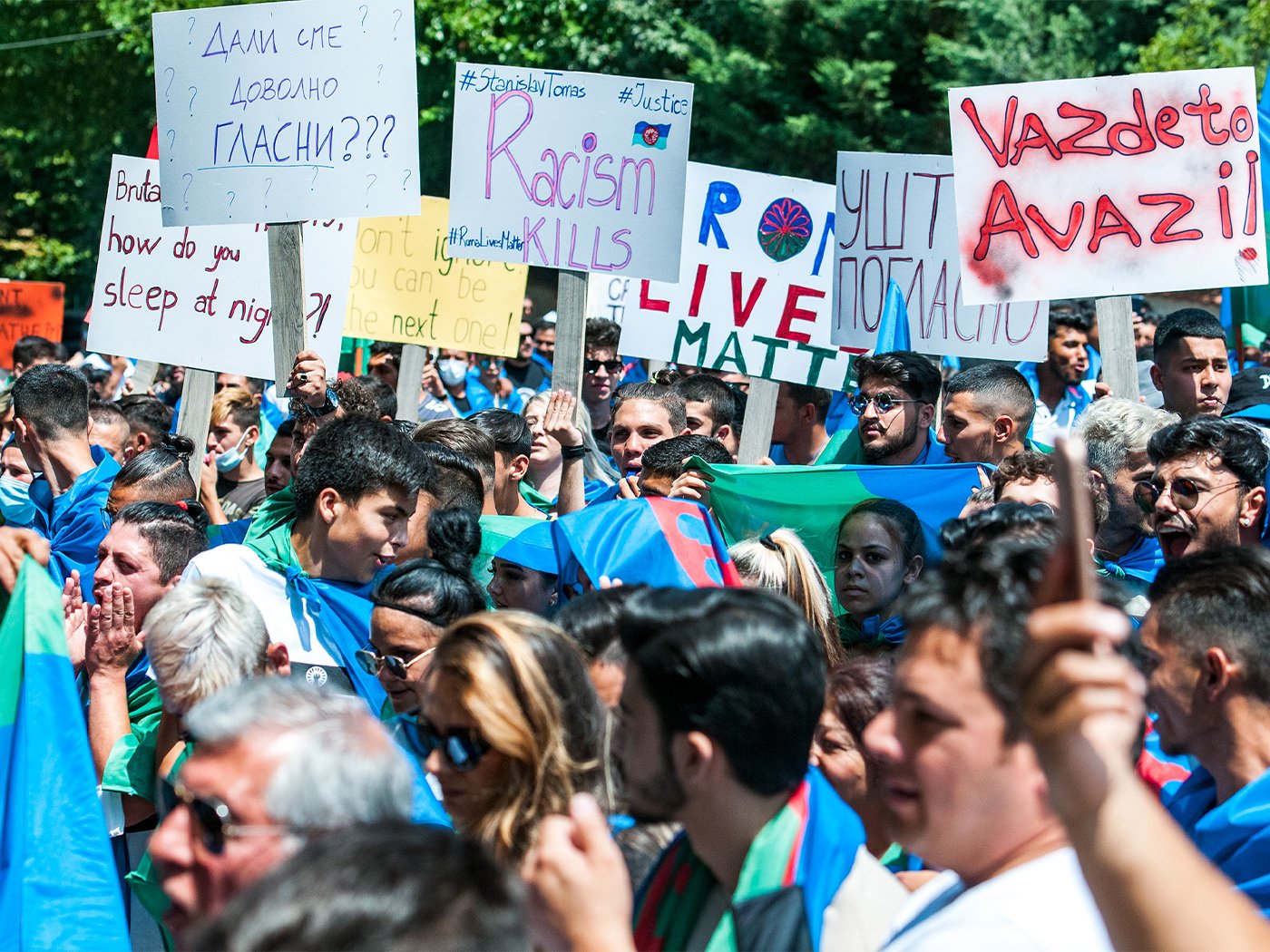The latest MIA annual report lays out the stark reality of racism faced by Roma and Sinti in Germany and elsewhere.
The Roma Foundation for Europe has condemned the sharp rise in racist attacks and discrimination against Roma and Sinti in Germany, calling it a test of political will and journalistic responsibility. The Foundation’s response follows the latest annual report by Germany’s Antiziganism Reporting and Information Center (MIA), which recorded 1,678 anti-Roma incidents in 2024—nearly three times the number documented in 2022. In the first report, released in 2022, the number was significantly lower, at 621 cases.
The report reveals a broad range of incidents, from verbal harassment and discriminatory treatment to physical assaults.
One of the most alarming cases involved a Sinti schoolboy in Berlin who was tied to a bench and beaten by other children. When his family confronted the perpetrators’ parents, the conflict escalated, resulting in serious injuries to members of the Sinti family.
“The latest MIA report lays out in stark detail what many Roma and Sinti in Germany and elsewhere have long experienced: that racism against them is not episodic, but systemic. When nearly half of respondents say they would feel uncomfortable having Roma as neighbours, this is not a matter of failed ‘integration’—it’s the outcome of a public climate shaped by decades of neglect, scapegoating and selective silence. These attitudes do not arise on their own. They are reinforced—intentionally or not—by how politicians, institutions and the media depict or ignore racism against Roma,” said Zeljko Jovanovic, President of the Roma Foundation for Europe.
“This silence—and in some cases, complicity—has real consequences. We saw it again this month in Northern Ireland, where a serious criminal case involving two teenagers led to six days of targeted attacks on Roma families in Ballymena. Homes were vandalised or torched. Political figures used the case to divide. And institutional responses were muted at best. Whether in Germany, the UK or elsewhere, Roma are still too often treated as a threat, not as people deserving safety—or as valuable citizens who contribute to societies and economies across Europe. This narrative must shift. Roma are not just recipients of protection. They are builders, workers, entrepreneurs, artists and voters—integral to Europe’s present and future,” he added.
The report highlights the role of media portrayal. The problem is not only explicit hate speech, but also habitual editorial choices: when ethnicity is mentioned in connection with alleged crimes but not with achievements; when the only “Roma stories” that make headlines are those of hardship, suspicion or conflict. Jovanovic urged media outlets to stop contributing to a public climate shaped by negative stereotypes about Roma. A constant drip of such stories—stripped of context, complexity or humanity—not only reinforces prejudice but also leads to dire consequences and physical harm.
“Responsible journalism must reflect the full reality: Roma running successful businesses, working in hospitals and offices, raising families, and pursuing their ambitions like anyone else. Journalism has power. It must be wielded with responsibility,” said Jovanovic.
Last year, in response to MIA’s findings of a doubling of anti-Roma attacks in 2023—including 50 violent assaults, 46 threats, and 89 incidents with neo-Nazi links—the German federal and state governments announced a permanent commission to combat antiziganism. While the Roma Foundation welcomed the move, this year’s report makes clear that not much progress has been made.
The Foundation calls for a fundamental reckoning with who gets to be seen as a citizen—and whose safety and dignity remain negotiable.

Roma Foundation for Europe
The latest

Serbia Must Amend Missing Persons Alert System to Protect Vulnerable Adults

Constitutional Review of the Šutar Law Confirms Serious Rule-of-Law Concerns

Europe’s Growth Depends on Roma Talent
Browse by category
Campaigns
Events
Facts
Press
Voices
For media inquiries:
[email protected]Sign up here so you don’t miss out on campaign updates, upcoming events and other news from the Roma Foundation for Europe and our network.
Sign up for our newsletter